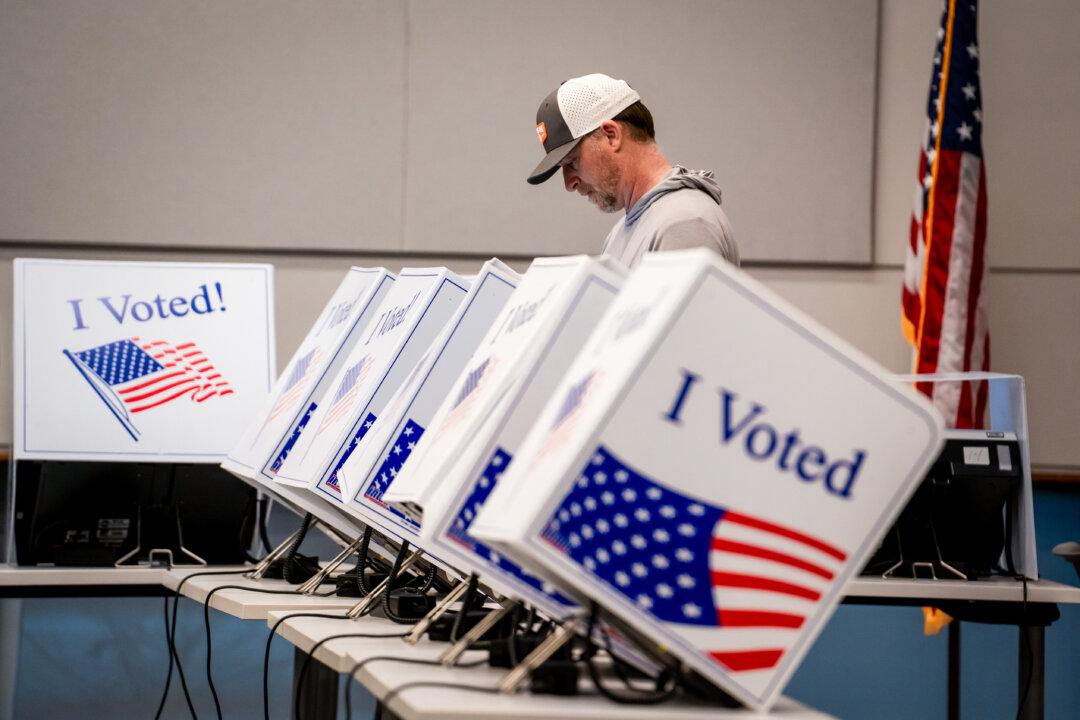WASHINGTON—The Trump administration will seek to secure a denuclearization deal with North Korea that would be reinforced by congressional approval, Secretary of State Mike Pompeo told reporters on June 7.
In doing so, the White House seeks to add the permanency to the deal sought by both sides. North Korean leader Kim Jong Un would be assured that President Donald Trump’s successor could not easily scrap it without approval from lawmakers.
Pompeo’s remarks come days before Trump is scheduled to meet Kim Jong Un in Singapore on June 12 and reveal that Washington plans to seek a bold deal that would stand the test of time. The consideration also reveals the skepticism Pyongyang has developed through dealing with past administrations.
“We are hopeful that we will put ourselves in a position where we can do something the previous administration didn’t do,” Pompeo said at the White House.
“They signed a flimsy piece of paper, and we’re hoping to submit a document that Congress would also have a say in—that would give currency and strength and elongation to the process, so that when administrations do change, as they inevitably do, and this one will—6 1/2 years from now—when that takes place, that Chairman Kim will have comfort that American policy will continue down the same path, on the course that we hope we’re able to set in Singapore.”
Pompeo said that Kim told him personally that he is willing to abandon nuclear weapons and that both sides are serious about securing a deal. Trump is hopeful about the outcome, Pompeo said, but will go into the meeting with “eyes wide open,” given the communist regime’s history of abandoning deals.
The Secretary of State also confirmed that the gap in understanding between the two sides about what denuclearization means has been narrowed, but he would not provide further details. The United States is seeking complete, irreversible, and verifiable denuclearization. North Korea is seeking relief from sanctions and assurances against foreign invasion and threats.
At a White House meeting with Japanese Premier Shinzo Abe on June 7, Trump said that the United States is holding back some 300 sanctions in the lead up to the summit.
Though there is hope for significant progress in the course of a single summit, Trump believes a deal may take more than one meeting.
“This will be at a minimum, we’ll start with, perhaps, a good relationship, and that’s something that’s very important toward the ultimate making of a deal. I’d love to say it could happen in one deal, maybe it can,” Trump said at the White House on June 7. “They have to denuke. If they don’t denuclearize, that will not be acceptable. We cannot take sanctions off.”
Trump said that he may invite Kim to the White House if the summit talks go in the right direction. He also assured Abe that he would bring up the issue of kidnapped Japanese citizens.
The set of events that made the Singapore summit possible started in early 2017 when Trump committed to a strategy of maximum pressure on North Korea. The president rallied the international community to impose strict sanctions on North Korea.
Pyongyang remained unfazed for much of 2017 and continued aggressive development of its ballistic missile and nuclear weapons program. But in the first days of 2018, Kim signaled a change of course.
A flurry of meetings and activity followed Kim’s announcement in January, culminating in a personal request to meet with Trump on March 8. The White House responded, and Pompeo went to Pyongyang in early April and again on May 9.
Pompeo credited Trump’s unique style for the unprecedented progress made in the span of a few months.
“The approach that President Trump is taking is fundamentally different,” Pompeo said. “In the past, there have been months and months of detailed negotiations, and it got nowhere. This has already driven us to a place we’ve not been able to achieve before.”
Asked what his impression of Kim as a person was at the two meetings, Pompeo would not elaborate but told reporters that the North Korean leader is clear about what he is willing to do and the challenges the two sides would have to overcome to secure a deal. Kim also understands that both sides would have to take “big and bold” steps to ensure a successful outcome.
“I’m hopeful that Chairman Kim Jong Un is prepared to make that decision for his country,” Pompeo said. “A big shift in his strategic understanding of his security.”
Trump and Pompeo have both promised North Korea a prosperous future if it abandons weapons of mass destruction.
The top U.S. diplomat also dismissed media reporting on disagreements and animosity between himself and national security adviser John Bolton.
“Suffice to say, those articles are unfounded and a complete joke,” Pompeo said.
The Secretary of State said that he will travel to Japan, South Korea, and China after the Singapore summit to coordinate the outcome of the meeting with America’s regional allies.
Abe noted that relations between the United States and Japan have never been better.
“Both Japan and the United States share a very long history, but I would like to underscore that we are at the best moment in terms of the strength of the bond between the two nations,” the Japanese leader said.






Friends Read Free